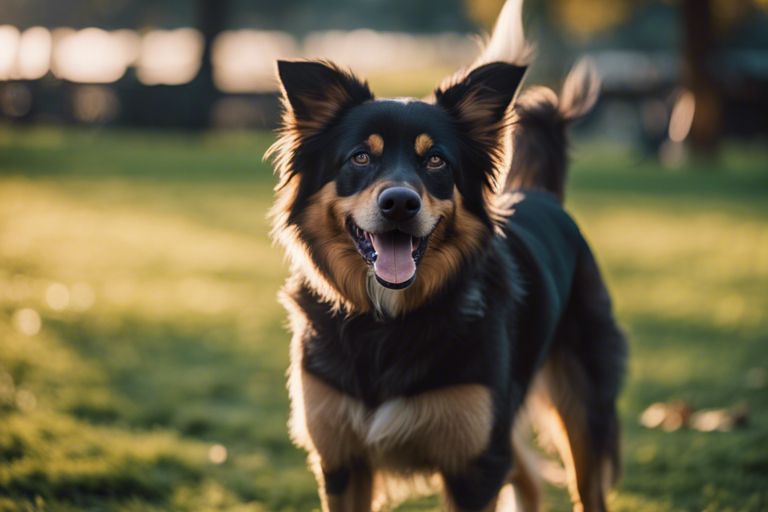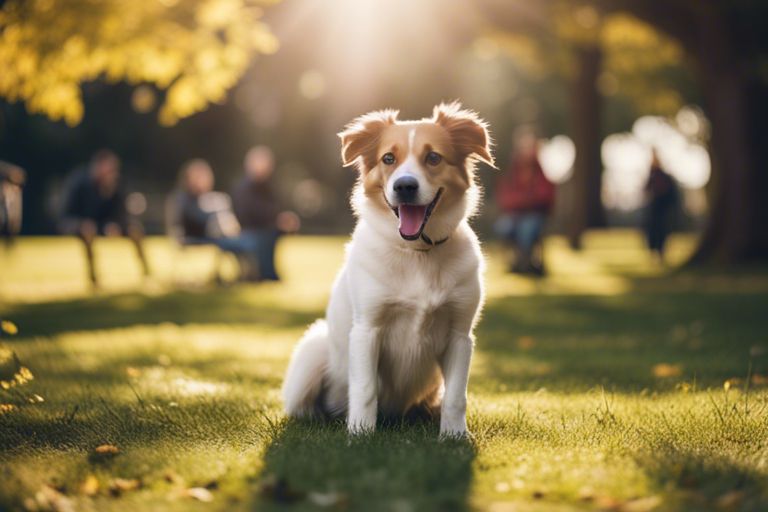Most dog owners know that socialization is an crucial aspect of raising a well-rounded and happy pet. However, the benefits of proper socialization for dogs go far beyond just getting along with other canines. In this blog post, we will explore how exposing your furry friend to a variety of people, animals, environments, and experiences can help them thrive both mentally and emotionally. Learn why socialization is crucial for preventing behavior problems, building confidence, and ensuring your dog leads a fulfilling life.
Key Takeaways:
- Socialization is necessary: Proper socialization helps dogs develop positive behavior and adapt to various environments and situations.
- Builds confidence: Interaction with other dogs, people, and experiences during socialization helps dogs build confidence and reduce fear and anxiety.
- Creates well-rounded dogs: Dogs that are well-socialized tend to be happier, more balanced, and better behaved in different social settings.
The Importance of Dog Socialization
Defining Dog Socialization
The key to understanding the importance of proper dog socialization lies in defining what it means for your furry friend. Dog socialization is the process of exposing your pet to different environments, people, animals, and experiences in a positive and safe manner. It involves teaching your dog how to interact with various stimuli in a calm and controlled way.
Benefits of Early Socialization
To help your dog thrive, early socialization is crucial. Puppies are most receptive to learning between the ages of 3 weeks and 3 months. During this critical period, exposing them to a wide range of sights, sounds, and smells can help prevent behavior problems down the road and ensure they grow into well-adjusted adult dogs.
For instance, early socialization can help reduce the likelihood of fear and aggression towards unfamiliar people, animals, and situations. Dogs that are well-socialized tend to be more confident, adaptable, and less likely to develop anxiety or other behavioral issues later in life. By investing time in your dog’s socialization early on, you are setting them up for a lifetime of success and happiness.
Steps to Socializing Your Dog
Socialization Techniques for Puppies
Even though puppies are cute and cuddly, proper socialization is crucial for their development into well-adjusted adult dogs. Socializing puppies involves exposing them to a variety of experiences, people, and other animals in a positive and controlled manner. This can include puppy classes, playdates with other dogs, and supervised outings to new places.
Socialization Strategies for Adult Dogs
With adult dogs, socialization is still possible but may require more patience and consistency. Introduce your adult dog to new environments, people, and animals gradually, always keeping their comfort and safety in mind. Positive reinforcement techniques such as treats and praise can help them associate new experiences with good feelings.
Techniques such as desensitization and counterconditioning can also be effective for adult dogs who may have developed fear or anxiety towards certain stimuli. Consulting a professional dog trainer or behaviorist can provide additional guidance on how to navigate socialization challenges with adult dogs.
Addressing Socialization Challenges
Overcoming Fear and Anxiety in Dogs
To help your dog overcome fear and anxiety, it is important to expose them gradually to new experiences in a safe and controlled environment. Start with small socialization sessions and gradually increase the duration and intensity as your dog becomes more comfortable. Use positive reinforcement techniques such as treats and praise to associate new experiences with positive outcomes. Consistency and patience are key to helping your furry friend build confidence and overcome their fears.
Managing and Correcting Aggressive Behaviors
The key to managing and correcting aggressive behaviors in dogs is to first identify the root cause of the aggression. Is it fear-based, territorial, possessive, or due to lack of socialization? Seek the help of a professional dog trainer or behaviorist to develop a customized training plan that includes desensitization techniques, obedience training, and behavior modification exercises. It is crucial to establish yourself as the pack leader through consistent training and clear communication to help your dog learn appropriate social behaviors.
Managing and correcting aggressive behaviors in dogs require a structured and consistent approach. Avoid punishing aggressive behavior as it can escalate the situation and erode trust between you and your dog. Instead, focus on redirecting their behavior positively and rewarding calm and non-aggressive actions. Seek professional guidance to address any underlying issues that may be contributing to the aggression and work on building a trusting and respectful relationship with your canine companion.

Socialization and Your Dog’s Well-being
Enhancing Mental Health through Social Interaction
For your dog, social interaction is more than just a fun activity—it plays a crucial role in promoting their mental well-being. Dogs are social beings that thrive on companionship and interaction with their owners, other animals, and even strangers. Regular socialization helps your dog develop confidence, reduce anxiety, and build trust with the world around them.
Physical Health Benefits of Social Activities
Dogs derive numerous physical health benefits from engaging in social activities. Regular exercise through playtime with other dogs or humans helps maintain a healthy weight, keeping them at a lower risk of obesity-related health issues like diabetes and joint problems. Additionally, social interactions can boost their immune system and improve their overall cardiovascular health.
Understanding the impact of socialization on your dog’s well-being is important for their overall health and happiness. By prioritizing social activities and interactions, you are not only enriching their lives but also preventing potential behavioral issues that could arise from a lack of socialization. Bear in mind, a well-socialized dog is a happy and healthy dog!
Summing up
The proper socialization of your dog is crucial for their overall well-being and development. By exposing them to various experiences, people, and animals in a positive and controlled manner, you are helping to build their confidence, reduce fear and anxiety, and prevent behavioral issues. A well-socialized dog is more relaxed, happy, and better equipped to handle different situations. It is necessary to start socializing your dog at a young age and continue with consistent, positive interactions throughout their life. Remember that every dog is different, so be patient, understanding, and tailor the socialization process to suit your dog’s individual needs. With proper socialization, your dog can thrive and lead a fulfilling life as a well-adjusted and well-behaved companion.
FAQ
Q: Why is socialization important for dogs?
A: Socialization is crucial for dogs as it helps them build confidence, learn appropriate behavior, and develop strong communication skills. Proper socialization can prevent fear, anxiety, and aggression in dogs, leading to a well-adjusted and happy pet.
Q: At what age should I start socializing my dog?
A: The critical socialization period for dogs is between 3 to 14 weeks of age. It is important to expose your puppy to various sights, sounds, people, and other animals during this time to help them become well-rounded and adaptable adults.
Q: How can I socialize my dog effectively?
A: To socialize your dog effectively, start by exposing them to different environments, people, dogs, and situations in a positive and controlled manner. Use positive reinforcement techniques such as treats and praise to reward good behavior and always ensure your dog feels safe and comfortable during socialization experiences.

